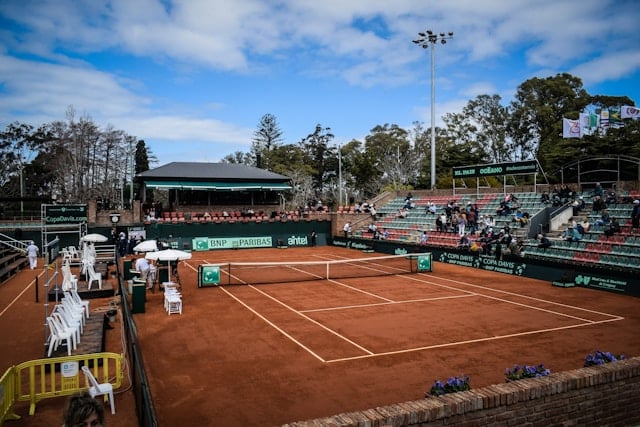What’s the Best Strategy for Psychological Preparation Before a Major Tennis Tournament?

In the world of professional tennis, a player’s mental fortitude can be just as crucial as their physical prowess on the court. A single match can turn into an intricate mind game between two opponents, each trying to outwit the other and seize the upper hand. Your training regimen may have made you a formidable player. Still, without the proper mental preparation, you may find yourself struggling to maintain composure, make crucial decisions, and ultimately, seize the point that could win you the game. So, what’s the best strategy for psychological preparation before a major tennis tournament?
Understanding the Role of the Mind in Tennis
Before delving into the strategies for psychological preparation, it’s essential to understand the role of the mind in tennis. The game of tennis is not merely a test of physical strength or agility. It requires a player to be mentally sharp, able to anticipate an opponent’s next move, make split-second decisions, and stay focused despite the pressure.
En parallèle : How Does Altitude Impact the Aerobic Performance of Professional Cyclists in Mountain Stages?
An effective mental game plan can help a player maintain focus, manage anxiety, make smarter decisions during matches, and mentally recover quickly from setbacks. The mind is every bit as instrumental as the body in determining the outcome on the tennis court. Understanding this is the first step towards harnessing the power of your mind to elevate your game.
Psychological Preparation: Pre-Tournament
Preparation for a match begins long before you step onto the court. Prior to a tournament, players spend countless hours training, honing their skills, and studying their opponents. Yet, an often overlooked aspect of this preparation is the time dedicated to mental conditioning.
Avez-vous vu cela : How Can Real-Time Biomechanical Analysis Improve Javelin Throw Techniques?
Mental training should be integrated into your regular training routine. It may include various exercises and techniques designed to improve focus, build confidence, manage stress, and develop mental resilience. Visualization is a common practice where players imagine themselves playing their best game, hitting perfect shots, and ultimately winning the match. This can help reinforce positive self-belief and create a mental blueprint for success.
Equally important is developing a game plan. This requires you to study your opponent, understand their strengths and weaknesses, and map out a strategy on how to play against them. A well-designed game plan can provide a sense of control and confidence going into the match.
Mental Game On The Court
Once you’re on the court, the mental game truly begins. Your ability to implement your game plan, manage your emotions, and make smart decisions in the heat of the match are all put to the test. The pressure can be intense, and how you handle it can make or break your performance.
It’s important to stay present and focused during the match, keeping your mind on the game and not on the outcome. This will help you better react to what’s happening on the court and make necessary adjustments to your game plan.
When faced with setbacks, be it a poor shot or losing a point, it’s essential to let go quickly and move on. Dwelling on past mistakes can impact your focus and performance on the next point. Instead, use these moments to learn and adjust your strategy.
Post-Match Reflection
After the match is over, taking the time to reflect can provide valuable insights for your psychological preparation for future tournaments. Analyze your performance, identify what worked and what didn’t, and think about how you managed your emotions during the game. Reflecting on these aspects will allow you to make necessary adjustments to your mental game plan for future matches.
Remember, tennis is just as much a mental game as it is physical. It’s not just about having the best forehand or the fastest serve. It’s about having the right mindset, the ability to stay focused under pressure, and the mental resilience to bounce back from setbacks. So, take the time to work on your mental game. It could be the deciding factor in your next match.
Adopting a Growth Mindset
One of the best assets a player can have in their mental toolkit is a growth mindset. This is the belief that abilities and skills can be developed over time through hard work, smart strategies, and input from others.
In tennis, a growth mindset can help you view challenges and setbacks as opportunities for learning and improvement, instead of seeing them as insurmountable obstacles. This can lead to greater resilience, persistence, and ultimately, better performance on the court.
Cultivating a growth mindset can be as simple as changing the way you talk to yourself. Instead of saying, "I can’t do this," try telling yourself, "I am still learning. I just need to keep practicing." This shift in thinking can have a profound impact on your mental state and can help you approach your training and matches with a more positive and proactive attitude.
In the end, the best strategy for psychological preparation before a major tennis tournament involves a combination of mental training techniques, a well-thought-out game plan, and the adoption of a growth mindset. With these tools in your arsenal, you’ll be better equipped to handle the mental demands of the game and perform your best on the tournament day.
Mental Toughness in Tennis: Building and Maintaining Confidence on the Court
Mental toughness in tennis is all about building and maintaining confidence on the court. Confidence is an essential element that can fuel your performance and give you the edge over equally skilled opponents. It’s not just about believing in your ability to win, but also maintaining that belief even when you’re trailing behind.
During your pre-match preparation, mental training can help you build this confidence. Techniques such as visualization, affirmations, and goal-setting can all contribute to a stronger belief in your own abilities. For example, regularly visualizing successful shots and victories in your mind can make you more mentally prepared for the match ahead.
However, building confidence is just the first step. The real challenge is maintaining this confidence on the court, where anxiety, pressure, and unforeseen circumstances can chip away at it. This is where your mental toughness comes into play.
Your mental toughness is tested when you face adverse situations, such as a series of lost points or an intimidating opponent. The ability to stay confident in these moments is crucial. Remember, every point is a new opportunity. Don’t let a missed shot or a lost point linger in your mind. Instead, redirect your focus towards the next point and maintain your belief in your game plan.
Effective Pre-Match Preparation: Setting the Stage for Success
Before a tennis match, effective preparation goes beyond physical training and skill sharpening. It also involves mental preparation, which can be the determining factor between victory and defeat. The preparation before tennis matches can set the stage for your performance on the court, impacting your focus, resilience, and decision-making abilities.
Part of your pre-match preparation should involve creating a game plan. This plan should outline your strategies for the match, taking into account your opponent’s strengths and weaknesses. It should be flexible, allowing for adjustments as the match progresses.
An equally important part of your pre-match regimen is mental training. Techniques such as visualization, deep breathing exercises, and positive self-talk can help you manage your anxiety, keep your focus, and boost your confidence. Developing these skills will help you maintain your composure and make smarter decisions on the court.
Remember, pre-match preparation is not just about the hours before the match. It’s an ongoing process that should be integrated into your regular training routine. By dedicating time and effort to mental training, you can improve mental toughness, enhance your tennis confidence, and prepare for the challenges of the tournament.
Conclusion: The Power of Mental Preparation in Tennis
In conclusion, the best strategy for psychological preparation before a major tennis tournament encompasses a range of mental techniques and a strong pre-match regimen. The power of mental preparation shouldn’t be underestimated. It can significantly impact a tennis player’s performance, dictating their focus, resilience, and decision-making abilities on the court.
Mental toughness and confidence are key components of this preparation. These can be nurtured through regular mental training, which should be integrated into your everyday tennis routine. A well-thought-out game plan is another crucial part of your pre-match preparation, providing a roadmap for your performance on the court.
Finally, adopting a growth mindset can significantly enhance your mental approach to tennis. This mindset can turn challenges into opportunities and foster resilience, enabling you to bounce back from setbacks swiftly.
Ultimately, the right mental preparation can give you the edge in a match, helping you outwit your opponent and perform your best when it counts. Whether you’re just starting your journey in a local tennis school, or preparing for a major tennis tournament, remember that the mental game is just as crucial as the physical one. So, make mental preparation a priority in your training, and you might just find that it’s the key to unlocking your potential on the court.
